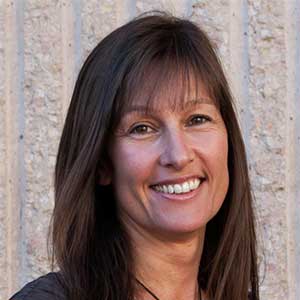But times have changed. Today’s children are mostly unfamiliar with the freedoms their parents had. Instead of roaming outdoors, most children play under the watchful eye of their parents, their free time filled with prearranged play dates, after-school activities or screen time. Overprescribed and often organised to the nth degree, the nature of play has changed. What does this mean for today’s kids?

Early childhood expert and play advocate, UniSA’s Dr Jane Webb-Williams, says that play is key to a child’s development, and despite the generational differences or the type of play, its importance cannot be understated.
“Play is the foundation of a child’s development,” Dr Webb-Williams says. “It contributes to their emotional, cognitive, physical and social development, and is essential to their growth and wellbeing.
“Play is how children explore and understand their surroundings. It’s how they test their capabilities and problem-solving skills, how they develop friendships and conversation, and how they build coordination, resilience and confidence.
“From climbing trees and playing chasey, to building block towers or making sandcastles – play is the innate and intrinsically motivated process by which children enjoy and experience their world.”
But declining levels of play – particularly outdoor play – are concerning.
Play activates key parts of the brain
Dr Webb-Williams says that play builds children’s knowledge of the world through self-driven natural creativity, exploration, curiosity, questioning and discovery – increasing activity in their brain.
“Virtually every brain system is shaped by experience,” Dr Webb-Williams says.
"When children are engaged in play, they’re activating their prefrontal cortex – the part of their brain that’s responsible for executive function – which is helping them develop planning skills, sequencing, organisation, critical thinking, reasoning and understanding.
“Everyone needs these skills, but we actually start to learn them in childhood, through play.”
Play is so significant to a child’s development that children have a legally binding right to play entrenched in Article 31 of the United Nations Convention on the Rights of the Child. Yet Dr Webb-Williams’ research suggests that play opportunities have become too restricted and unbalanced, with about 18 per cent of children in her study spending all of their free time indoors engaged in technology play.
Times have changed – and so has play
So, what’s happened? Have parents become so busy that they’ve forgotten the basics of play they experienced as children? Or have parents become less resilient to the things they cannot control? Dr Webb-Williams says it’s a bit of mix.
“Some of the changes we’re seeing are the inevitable mark of modern society,” Dr Webb-Williams says.
“Family structures have changed – parents are time poor and there’s increased attention on academic activities, not to mention the challenges presented by 24/7 connectivity and digital devices. Children live in such a fast-paced world that it has been said they look but don’t see, hear but don’t listen and touch but don’t feel.”
For example, the Internet has created a virtual world where children – and adults – spend increasing amounts of time, and this has significantly affected the way people and communities engage and connect with each other.
“Children are naturally active, but when they see their parents on Facebook or texting friends, it’s easy for them to think
‘I want to play with that too’,” Dr Webb-Williams says. “So the behaviour modelling is there – and it’s not good.”
Safety concerns are another factor with “stranger danger” often cited as a reason not to allow kids to play outside unsupervised, as well as increased traffic.
Lack of spaces that encourage free play
Dr Webb-Williams says urbanisation and increased housing density means there are significantly fewer places for children to play outdoors.
“These days entertainment areas dominate outdoor spaces, leaving the ‘backyard’ as we knew it, a relic of the past.”
Society is unwittingly encouraging sedentary behaviour, leading Australia’s children down a path of under-development – mentally, socially, physically and emotionally.
UniSA graduate Kelly Kroeger, a specialist in paediatric development and sensory processing, says outdoor play is particularly important for a child’s development.
“By encouraging outdoor play, we are further enhancing movement of our bodies and the use of our muscles, which helps increase concentration, focus and attention and supports a greater level of academic performance, motor-based achievement and confidence,” Kroeger says.
As principal paediatric occupational therapist and director with Learn Sense Grow, she says that deficits in these areas can have a serious impact on a child’s ability to learn and grow.
“Wherever possible we use the outdoor environment to teach and develop important skills for lifelong learning,” Kroeger says.
Aussie kids get D- for physical activity
The 2018 Active Healthy Kids Australia report shows that Australian children are still not reaching the recommended levels of daily physical activity, with Aussie kids again receiving a D- for Overall Physical Activity as well as a substandard international score of equal 32nd out of 49 countries.

Lead researcher, UniSA’s Dr Tasha Schranz, says the results are concerning.
“Daily physical activity is vital for the health and wellbeing of Australian children and young people, now and in the future,” Dr Schranz says.
“Active kids are fitter, have stronger muscles and bones, concentrate better and are more confident.
“But they’re also less likely to be overweight or obese, be diagnosed with Type II diabetes, metabolic syndrome or other comorbidities.
“We want to see children spending more time outdoors, playing physical games – swinging from monkey bars, climbing trees, or just mucking around and engaging in rough and tumble play.
“These are the things today’s children are missing out on and unfortunately, as children’s lives increasingly revolve around indoor spaces and the routine of school and home, natural and physical adventure play has gone by the wayside. We need to find ways to fix this.”
Planet Ark’s Connect in Nature report also found that Australians are spending the majority of their time indoors and almost three hours a day on their mobile devices outside of work.
But it’s not all bad news. Dr Webb-Williams says all play, whether indoor, outdoor, or even screen play, can be beneficial.
“Play exists along a continuum – one end has unstructured, spontaneous, child-initiated play (or free play), and the other, parent or teacher-directed play (which is often connected to education outcomes).
“But, while all shades of play are important, children need a balance of play opportunities and unfortunately, it’s often the unstructured, free play that they’re missing out on. This is what we need to remedy.”
Some experts have suggested children are experiencing “nature deficit disorder”, helping to create a generation of children who are suffering obesity, attention disorders and depression.
General manager of Nature Play SA, Jason Tyndall, says the answer is simple: “We need to connect kids with the outdoors.”
He says the only places some children get to roam are within their childcare centre or primary school grounds.
The value of roaming free
Tyndall, a UniSA graduate in Applied Science (Biodiversity, Environmental & Park Management), says the problem is that society has “overprescribed” play spaces, including local playgrounds, which can limit a child’s play unless they’re designed for children’s developmental needs.
“When we think about it, a typical day in our own childhoods included a whole range of opportunities to roam and create: we used our imaginations, we climbed (and fell out of) trees; we roamed, we took risks, we explored, we got dirty … but today’s children, in general, are not roaming anymore, they’re not pushing boundaries and, as a result, we’re seeing a rise in sensory integration issues, a decline in socially rich play experiences, greater difficulty in children being able to regulate their emotions and fewer physically active children.
“Play used to be very sensory – water, dirt, mud pies. As humans we need to feel textures, we need to solve problems, to think creatively, and to figure out our limitations and how to challenge them.”
Tyndall says that avoiding risk can limit a child’s development.
"The reality is too many parents see the physical risks of play – what might happen if their child slips over, falls down or climbs too high,” Tyndall says. “But what they don’t see is the developmental risks if we stop kids from trying.”
For example, many adults see a stick as a potential weapon.
“For a child, a stick can transform them into Harry Potter, a pirate with a sword, or a fairy,” Tyndall says. “They’re role playing and at the same time gaining important life skills: from a social perspective, they’re learning cooperation as they play with other kids; from a language perspective they’re evolving as they talk about eye patches and ships; and from a speech perspective they’re articulating new sounds (the pirate’s ‘Arrrrgh’), and all this comes from the imaginative potential of a stick.
“Too often sticks are removed from play because they’re considered dangerous. In fact, it’s the adult’s perception of danger, and by removing them, we’ve unwittingly closed a door on creativity and imagination.
“If we instead teach them boundaries when using a stick, we’re giving them the confidence to be the owners of their space,” Tyndall says. “They learn the rules and become self-governing, so much so that when other kids join their play, they’ll share the rules about their own ‘stick agreement’.”
The challenge for parents and educators is to find ways to deliver more freedom to enable each child the opportunity to learn and develop to their potential.
Dr Webb-Williams says that from the moment children are born they are directed by adults, they’re told what to wear, when to brush their teeth, what to eat.
“When children play, they decide when the play starts and stops, what the script is, the rules – everything,” Dr Webb-Williams says.
“This is the beauty of play – there is freedom – either at the initiation stage where children choose to engage in play or through active sustained participation and self-direction.
“We will never create free thinkers unless we promote this kind of freedom, flexibility and independence through play.”